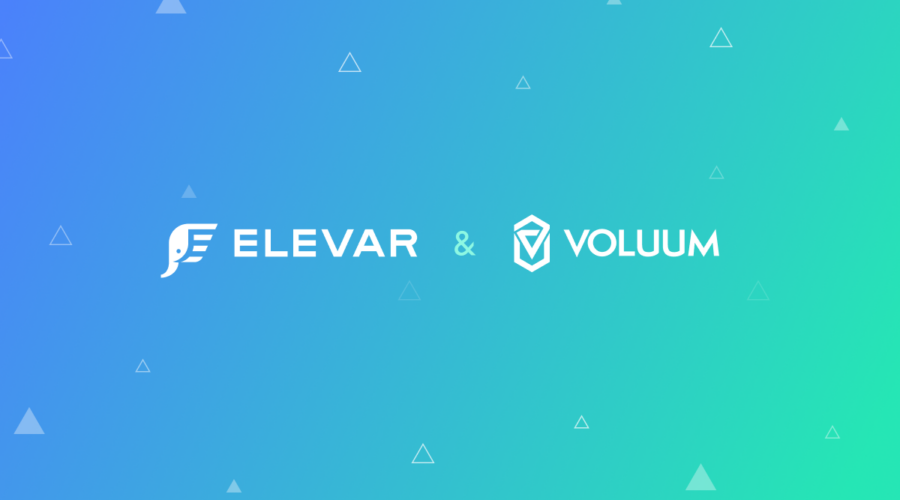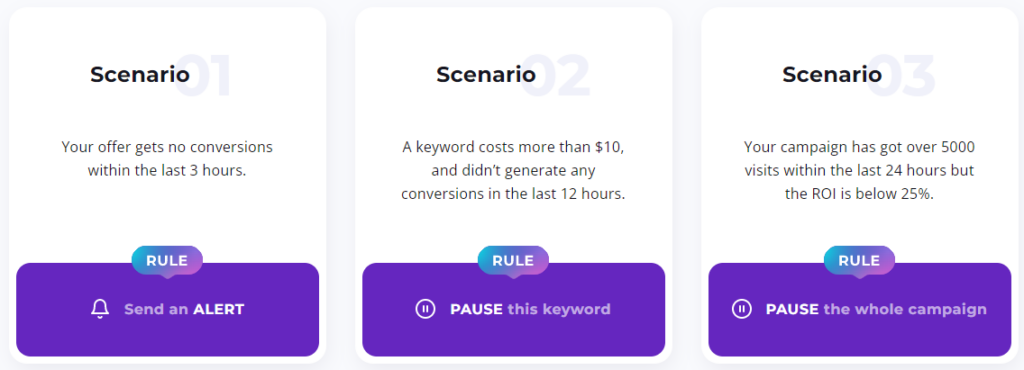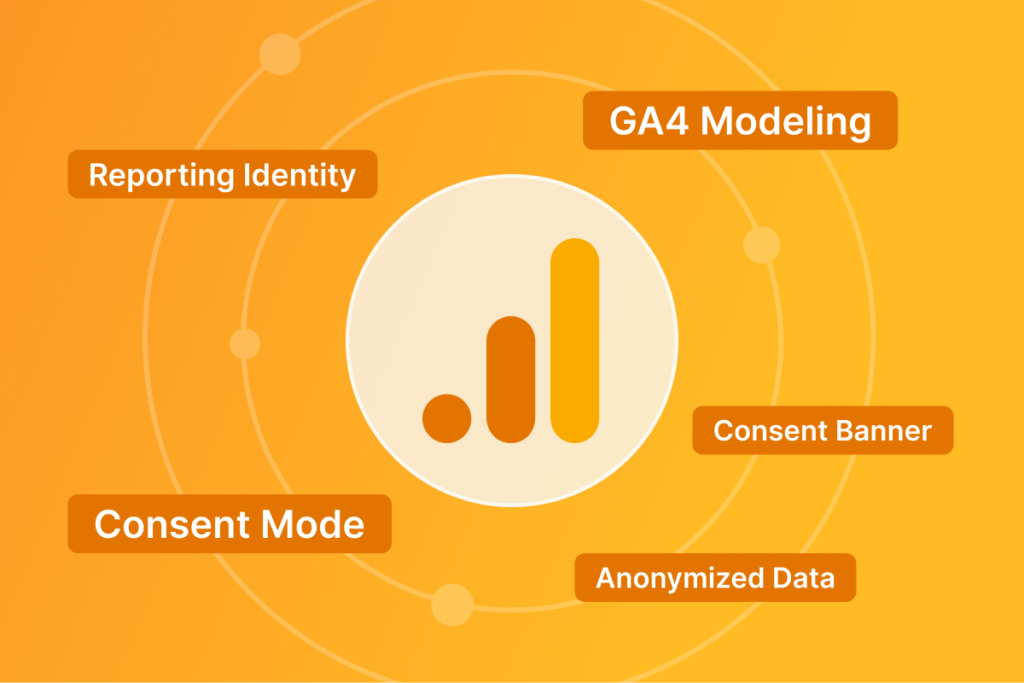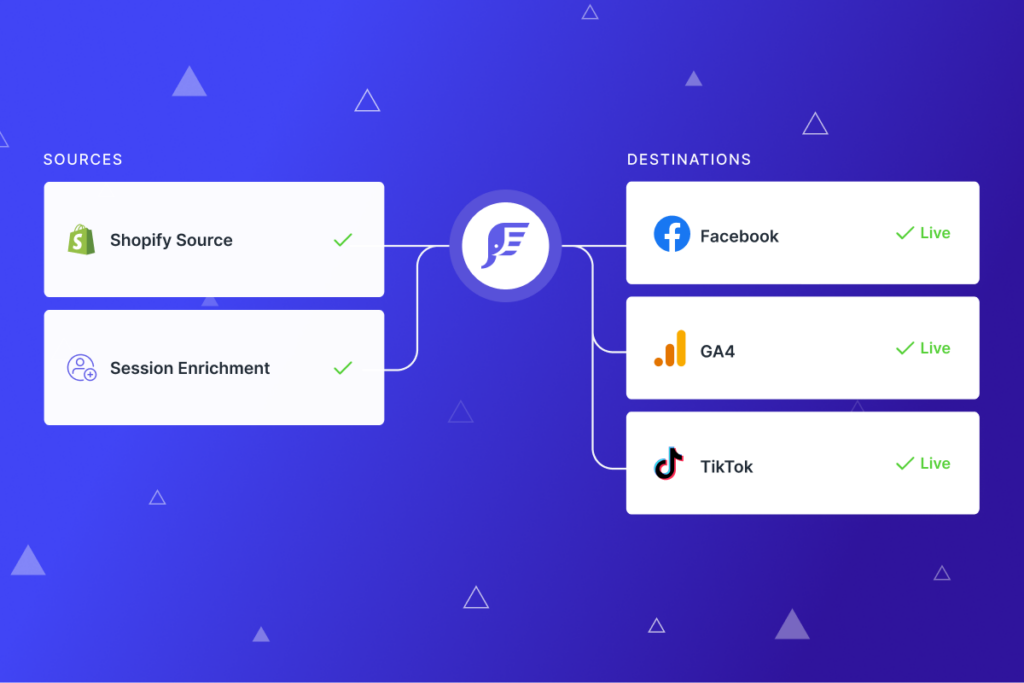Good Foundations: Voluum and Elevar improving your Shopify store
Shopify is perfect for easy set-up, but optimizing your ad dollar spend with Facebook, Google, etc, means utilizing tools that are designed for just that. Read more to learn what advertising a Shopify-powered store looks like and how tracking conversions works, to see how you can improve both using tools like Voluum and Elevar.

Good Foundations: Voluum and Elevar improving your Shopify store
With eCommerce tools like Shopify, starting your own online store is simple and straightforward – all you really need is an idea, a product, and a marketing plan. Brick and mortar stores require a lot more planning on the front end, from renting a space to set-up, and dealing with employing, training, and management of in-person employees to help you run it.
Shopify takes care of both your digital presence and your online real estate. You can design a beautiful and functional online store and be ready for customers in just one day.
Here, we’ll look at streamlining your eCommerce operations with the right tools. Shopify is perfect for easy set-up, but optimizing your ad dollar spend with Facebook, Google, etc, means utilizing tools that are designed for just that.
So, let’s investigate what advertising a Shopify-powered store looks like, and how tracking conversions works, to see how you can improve both using tools like Voluum and Elevar.
The performance aspect
While some people decide to promote their Shopify site organically – making their store easily findable on the web – performance-oriented marketers will choose to also pay for exposure.
You must carefully balance costs and profits, and the only way to do that accurately is to use a tracking solution such as Voluum.
Voluum, especially when powered with Elevar, can track events in your store, including conversions.
Conversions are any events deemed valuable by the merchant or brand, including:
- Purchases or purchases of subscriptions
- Logins and signups
- Items added or removed to a cart
- Creating an account
- Adding shipping or payment information
- View item, cart, or search results
Client-side tracking vs Server-side tracking
Elevar’s conversion tracking method uses server-side tracking to collect information. Server-side tracking is designed to offer solutions for improved data collection – especially when using client-side tracking technologies like pixels.
‘Client-side tracking’ is when the client’s own computer sends information about an event, with pixels or other technology. Conversely, server-side tracking first relays information to a server, which then makes a request to such a platform.
Server-side tracking solves several problems of client-side tracking:
- Client-side tracking uses cookies to store fingerprint data (such as Voluum click ID or Google click ID – GCLID). If those cookies are blocked because of various data protection mechanisms, then the target platform may register an event but will have trouble connecting it to the original click. Conversion attribution, crucial in reconstructing a buyer’s journey, will not be possible.
- Cookies may reduce the advertised time period for registering a conversion, for example, from Facebook’s seven days to just 24 hours (depending on browser settings).
- Using cookies requires gathering a user’s consent in Europe due to GDPR. If you advertise there, ask for consent. With Elevar, you can use ready-made cookie-consent solutions (such as Cookiebot) with a single click.
- The iOS 14.5 update caused many tracking issues. Using Elevar to send conversions to Facebook conversion API (directly or through Voluum) increases data accuracy over the situation where Facebook’s pixel is used.
The key is not only to record that such an event has happened but also to connect it with the original click at the origin point of the customer’s journey. With this information, you can better identify your audience to adjust your strategy accordingly and bring in more profit.
The term for identifying that original click at the origin point is called ‘conversion attribution, ’and it is only possible when you capture fingerprinting data along the way. More on that below.
Tracking conversions with pixels
Shopify and platforms like Facebook and Google use pixel technology to keep track of conversions. Pixels (sometimes referred to as scripts or tags) are small pieces of code that make requests to a server when a page loads or other scripts launch (like adding an item to a cart).
Scripts are so prevalent nowadays that marketers often use script managers to easily add new ones and keep an eye on their performance and the data they’ve collected. The most well-known solution is Google Tag Manager (GTM). With GTM, you can use just one script on a page – a Google tag – and then load all other scripts when the tag is launched. GTM integrates with the most popular platforms, and includes Google properties such as Analytics or Ads.
To get even more detailed, accurate data, combine GTM with a data layer. A ‘data layer’ is a JavaScript object designed to track and segment data that could otherwise be labeled incorrectly, or not discoverable at all.
This may all seem confusing now, but don’t worry – many, if not most people, including seasoned marketers, don’t entirely understand it all. The big idea here is that there are a lot of issues with incorrectly configured data layers that all boil down to one giant issue: messy data.
This is where Elevar helps.
In conversion tracking, server-side technology is called a “postback” (since it uses the POST command to pass information BACK). Postbacks are great because they are not cookie- dependent, and they’re both reliable and fast. As soon as the server pings the target platform (Google Ads for example), it immediately records a conversion. Fingerprint data is not stored in a cookie, but is instead passed in a request URL using tracking parameters.
You may now wonder “where’s the catch?” as postback sounds pretty great. The catch is that it needs to be enabled on the offer side. In many cases this would be a problem, but not with Elevar.
How Elevar and Voluum work their magic for your store
Elevar brings accurate server-side tracking to direct-to-consumer brands (D2C) on Shopify. This service is incredibly helpful and timesaving when dealing with problematic data layers or lost conversions.
Elevar allows you to:
- Use a data layer written for Shopify that improves data accuracy. Elevar’s data layer is a one-click installation process.
- Launch server-side conversion tracking and pass this data easily to your marketing channels directly or through Voluum.
- Use Facebook’s Conversion API (CAPI instead of pixels to tackle problems with identifying users after the iOS 14.5 update).
- Use Elevar’s built-in tag templates to connect to various marketing channels.
Recently, Voluum and Elevar’s talented teams decided to partner up and connect their platforms to create an end-to-end solution for Shopify marketers. This integration ensures nearly 100% data throughput from Elevar to Voluum – a significant increase from the more typical 70% – 90% observed without Elevar’s tracking.
Voluum gives marketers insights into recorded data and plenty of options to optimize the performance of marketing campaigns with:
- Detailed real-time reporting. Use groupings and drill-downs to outline the most relevant data. Access your data right away, no matter the volumes.
- A/B test variants of your landing page to find out what works with your customers.
- API Integrations. Synchronize costs, fetch status of campaigns and control them from within Voluum with the Automizer tool.

- Automation. Control your campaigns automatically with auto-rules that employ complex yet easy-to-use logic to launch desired actions when set conditions are met.
- Anti-fraud solutions that scan your traffic to look for patterns of non-human behavior.
- Team collaboration. Invite users with varying degrees of access privilege to divide the workload and protect the sensitive parts of the collected data.
Voluum is great for ecommerce store owners that want to implement a more performance-based approach to their advertising. In performance marketing, it’s all about numbers and data-driven decisions.
Elevar can feed Voluum with accurate conversion data recorded from Shopify using postbacks, and Voluum will be your one stop shop for data analysis and optimization. Voluum can even pass the conversion data back to Google or Facebook to tune their algorithms.
An ROI boost that you didn’t know was possible
Elevar and Voluum work in tandem to maximize profits coming from your ad dollars.
If you want to tune and optimize your marketing strategy to deliver maximum results, scale up your business, conquer new markets and find new customers for your products – there is no better way.
No amount of guessing will help you maximize profits from intelligently-placed ad dollars. Inconsistent data can be avoided with the right tools in place, because relying solely on Facebook and Shopify for your data isn’t enough, and could lead to missed conversions, inaccurate advertising due to lack of testing, or inconsistent data.
Check out Voluum with Elevar today!



Leave a Reply